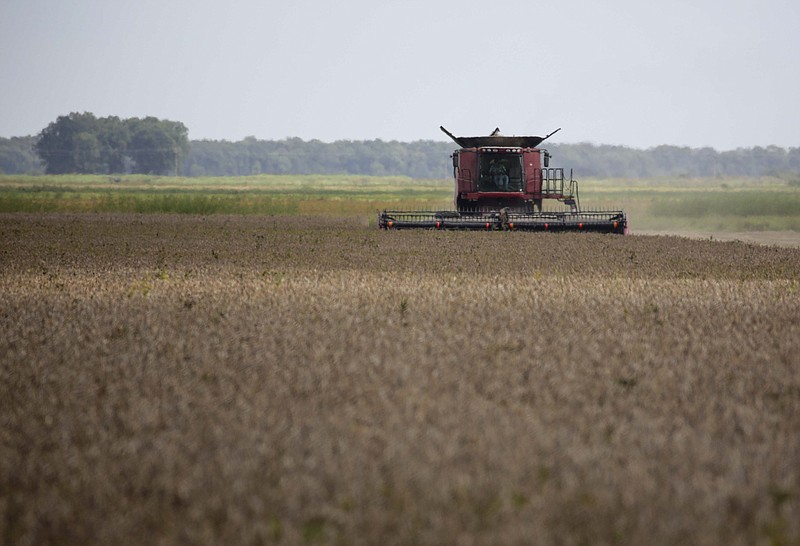The pesticide committee of the state Plant Board on Wednesday recommended retaining a June 30 cutoff on spraying dicamba across the top of dicamba-tolerant soybeans this growing season.
The Plant Board had a June 30 cutoff last year for dicamba's in-crop application in soybeans and July 30 for cotton -- the longest spray season yet in Arkansas.
The state had 360 complaints of dicamba damage in 2021, with dicamba since then confirmed as the suspect herbicide in 266 cases. That compares with 137 cases of confirmed dicamba damage in 2020, when the state had a May 25 cutoff.
Matthew Marsh, chairman of the Plant Board, noted the increase, calling it unacceptable to him.
"If moving that date out increased the number of complaints, and I think the numbers prove that out. ... Now if it's acceptable to the board, that's a different story. To me, it's not, but I just thought we at least acknowledge that what we did in 2021 increased damage statewide. I think it's kind of hard to argue that it didn't."
The Plant Board has received more than 1,500 complaints of dicamba damage since 2017, far more than complaints of any other herbicide.
The U.S. Environmental Protection Agency in December said it wouldn't change dicamba regulations for 2022, despite the damage in Arkansas and other soybean-producing states, partly because there wasn't enough time before this year's crop season to develop new restrictions or to ban the herbicide.
The University of Arkansas Division of Agriculture last summer estimated that 650,000 acres of soybeans had been damaged by dicamba, based on reports from its county extension agents. Of the state's estimated 3 million acres of soybeans last year, about 1 million were of varieties that aren't tolerant of dicamba. The other 2 million acres were soybeans genetically modified by Monsanto to be tolerant of dicamba and released commercially in 2016 as part of its Xtend crop system.
Possible dicamba damage to trees also was reported at the 160,000-acre Dale Bumpers White River National Wildlife Refuge.
Plant Board regulations allow one year's regulations to continue to the next, so the pesticide committee's recommendation on 2022 rules wasn't required.
Lester Scott of Little Rock, the committee's chairman and first-ever Black member of the Plant Board, said he believed it was important to put out a recommendation for the full board, which is next scheduled to meet in March. Scott is a retail market manager for FMC Corp.
The committee, until Wednesday, hadn't met in nearly a year because of a Supreme Court ruling in May 2021 that resulted in nine seats being vacated. The nine members were removed because they were direct appointees of trade groups -- an illegal delegation of power by the General Assembly when it set up the practice more than 100 years ago, according to the court.
A new state law allows the trade groups to submit names of three potential Plant Board representatives, with the governor then making one selection for each group.
Gov. Asa Hutchinson last fall named 14 Plant Board members. Two positions -- representing associations for oil marketers and seed growers -- remain vacant.
Other pesticide committee members are Mark Hartz of Stuttgart, Matthew Miles of McGehee, Nathan Reed of Marianna, Travis Senter of Osceola and Richard Watts of Watson. All are new appointees.
Other Plant Board members are Mark Morgan of Clarksville; Mark Hopper of Mountain Home; Marty Eaton of Jonesboro; Sam Stuckey of Clarkedale; and Darrell Hess of Wynne.
Two nonvoting members -- Ken Korth and Nathan Slayton -- represent the UA Division of Agriculture.
